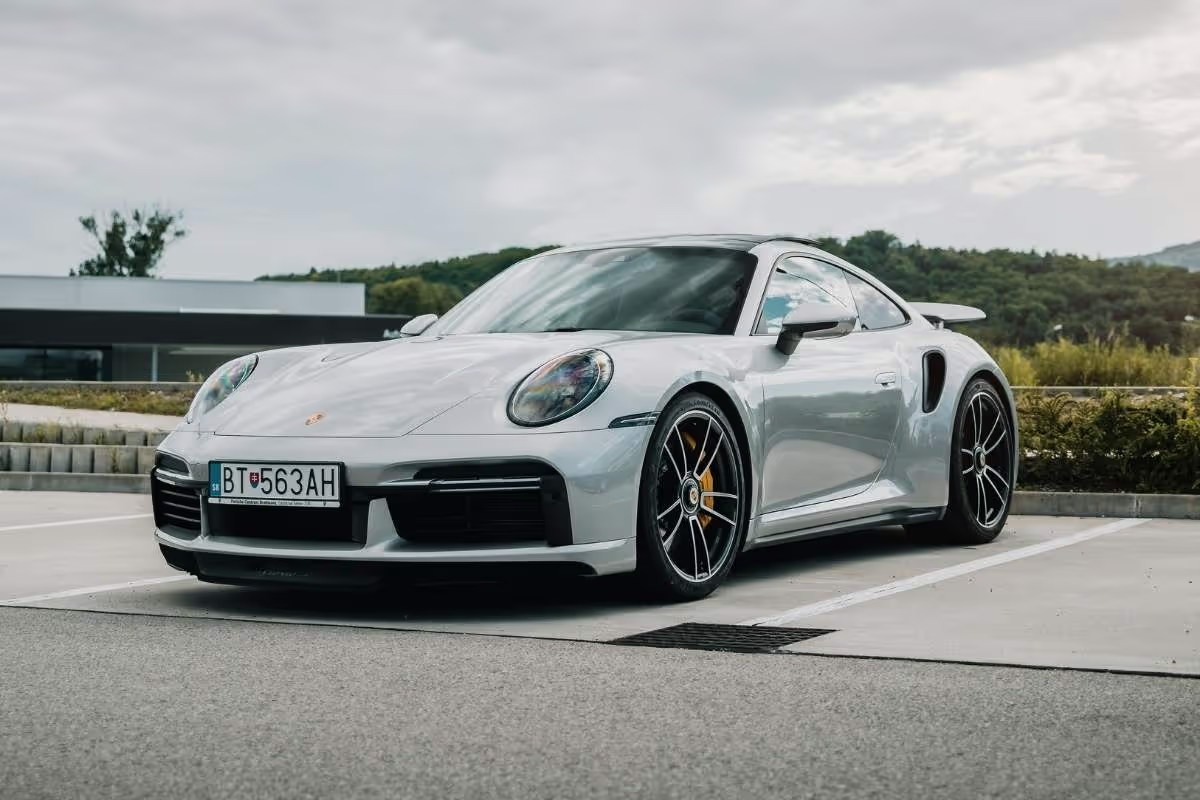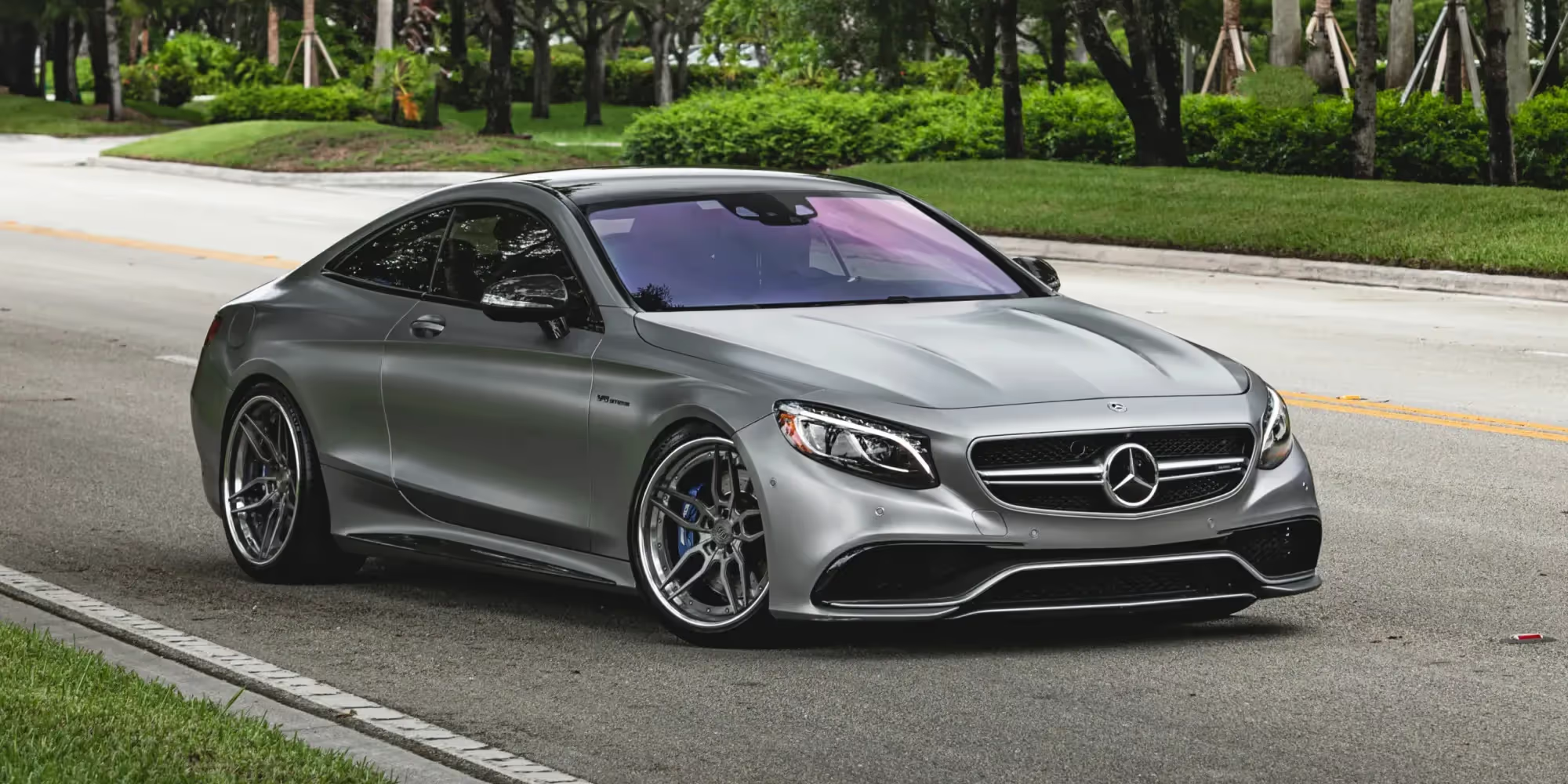Mezger engines at Porsche from Japan — a legend of reliability
Although working in one company for a lifetime does not bode well for us, Hans Mezger certainly could not complain about the lack of exciting moments. The German engineer joined the company right after graduation, in 1956, but started as an employee of the accounting department. Interestingly, after completing his education in the field of engineering, he had almost 30 job offers from various companies, but decided to choose precisely Porsche. Only later did he get a job as a designer in the engine department. Privately, he had an old Porsche 356, which was not in the best condition, but he enjoyed it anyway. He was promoted quickly when it became apparent that he could build race-winning engines. Now Porsche 911 with Mezger engines are valued by motorists and collectors.
The genius and achievements of Hans Mezger
In 1959, Mezger first came to work on the design of a Formula 1 car, where he was responsible for the design of the air-cooled engine for the Porsche 804 from the beginning, and was partnered by Hans Hönick. Initially, its power was 105 hp, but in the process of work 186 hp was squeezed out of it. However, real notoriety brought him a 12-cylinder engine for the Porsche 917, which gave Porsche its first win in the 24h Le Mans race. Mezger designed, among other things, a turbocharged version, which had a power of 1600 hp. Another famous figure also participated in the works - Ferdinand Piech. Mezger was also the creator of engines for the McLaren team and thus one of the authors of the successes of Alain Prost and Niki Lauda. Mezger designed a turbocharged V6 engine from scratch, which reached 1000 hp. In total, cars with Mezger engines won 25 races, and this was the last sporting success of the German engineer.
Hans Mezger and the Porsche 911 engine
In 1959, Ferdinand Porsche created the first sketches of the 911, which was supposed to replace the 356. However, it was Hans Mezger who breathed life into this model. The Porsche 911 had an air-cooled boxer engine designed from the ground up. It was characterized by compact size, low weight and exceptional durability. The Mezger engine was also the basis for the German manufacturer's future success. The modular design made each subsequent generation of the 911 more of an evolution than a revolution.
Why is the Mezger engine so special? It has an aluminum block and heads, which makes it lightweight and durable. The dry oil pan ensures constant lubrication, even with strong side overloads. Finally, we also have the timing, which is often the weak link of the engine. Mezger abandoned the idea of using a belt or chain and its design consisted of toothed gears. The six-cylinder boxer also provides a lowered center of gravity and improved stability.
Over time, the efficiency of the unit was increased by installing a turbine. The first Porsche 911 Turbo debuted in 1975, it had an air-cooled 3-liter boxer that was paired with a KKK turbocharger. The maximum power was 260 hp. The aggressive torque curve in combination with the manual transmission makes the car exciting and demanding to this day.
What models of Porsche 911 with a Mezger engine are worth considering?
Hanz Mezger is associated primarily with motorsports, so if you want to become the owner of a unique Porsche 911, which has a Mezger engine, then we have some interesting proposals for you. They will work both during everyday driving and on the racetrack.
Porsche 911 GT3
We start with the GT3 model, which was introduced with the 996 generation. It is equipped with a naturally aspirated, high-speed boxer engine with a capacity of 3.6 liters. The driver has at his disposal power from 360 in the first year of production to 380 hp from 2001 and a manual transmission. The engine likes high revs and provides atomic acceleration. According to the manufacturer, the sprint to a hundred takes only 4.1 seconds. Inside there is a harsh climate, typical for sports cars. In the Porsche GT3 of the 997 series, the manufacturer has for the first time used an electronically adjustable suspension in a civilian car.
Porsche 911 GT3 RS
Could the Porsche 911 GT3 be even more extreme? The answers to this question can be found in the model with the annotation RS. The car is even more extreme, lighter and more technologically advanced, although the power remained the same as in the standard GT3. It is worth mentioning that for the GT3 RS of the 997.2 type series, a new 3.8 engine with 444 hp appeared. A year later, the GT3 RS 4.0 version with a 493 hp 4.0 engine went on sale, which is very rare.
Porsche 911 Turbo
In the case of the Porsche 911 Turbo, you can consider both the purchase of a classic and something newer. We recommend the model from the 993 series. This is the last generation of the 911, which had an air-cooled engine. For this reason, these cars achieve high prices among collectors. It was also the first Porsche 911 Turbo with two turbochargers. The supercharged 3.6 engine generates a maximum power of 402 hp. Acceleration from zero to a hundred takes about 3.2 s, and the declared maximum speed is 322 km/h.
In 1997, the 911 Turbo S was introduced, which was produced in a small number of copies. Engine power increased by 24 hp. Additional air intakes were introduced, and an additional oil cooler appeared behind the front bumper. Only 345 911 Turbo S were sold.
Porsche 911 GT2
The 911 GT2 is something for those who are confident in their abilities behind the wheel. Powerful engines, rear-axle drive and manual transmission mean that there is no room for error and hesitation here. The GT2 version debuted in the 993 generation. The engine here has a maximum power of 436 hp. In the 996 series, the power increased to 462 hp, and in the 997 - to 530 hp. The first generation had, among other things, plastic fenders, a large wing and is extremely rare. Only 57 cars were built, of which only 13 were right-hand drive. On the other hand, the 997 series model uses turbochargers with variable blade geometry. There was also an RS version with a 612 hp engine, which was 70 kg lighter than the GT2.
Porsche with a Mezger engine from Japan - why is it worth it?
Without a doubt, Japan is one of the best countries in the world for everyone who is looking for exceptional cars in pristine condition, and that is what they usually are Cars from Japan. Therefore, wanting to become the owner of a Porsche with a Mezger engine, it is worth paying attention to the cars offered in this country. They are often found with the steering wheel on the left, as wealthy Japanese show by this that they are better drivers than others. Added to this is the question of meticulous care for the technical and visual condition of cars. All of this makes Porsche from Japan is the perfect solution.
If you are interested in buying and Car transport from Japan, use the services of a professional realtor - for example, Sakura Motors. All you have to do is define your expectations and budget, and the specialists will take care of the rest. Already at the first meeting you will know the approximate cost of importing a car from Japan.
summary
Hans Mezger is undoubtedly an engineer to whom Porsche owes many successes, the greatest of which is the creation of the legend of the iconic 911. Although times change, the assumptions of the engine design of this model remain unchanged and the Porsche 911 remains synonymous with the sports car. This makes the sales of these cars go perfectly and they keep the prices high in the secondary market all the time. Models from older generations are in demand among collectors. They can not only enjoy their driving qualities, but also make an excellent investment of capital. Hans Mezger retired in 1994 and died in 2020, at the age of 90. His spirit lingers all the time under the tailgates of iconic sports coupes from Stuttgart.









